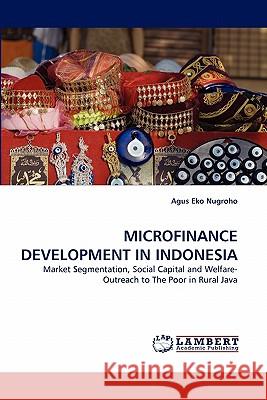Microfinance Development in Indonesia » książka
Microfinance Development in Indonesia
ISBN-13: 9783844319385 / Angielski / Miękka / 2011 / 220 str.
Microfinance policy in Indonesia is more likely to follow the commercialisation path. It is believed that the for-profit focus of formal MFIs, such as microbanks) can be achieved in conjunction with increased outreach to the poor. However, there is no convincing evidence that the achievement of profitability goes hand-in-hand with the capacity to serve the poor. In this regard, this book argues the commercialisation of MFIs increases financial performance but reduces outreach to serve the poor in Indonesia. Previous research reveals the positive impacts of microfinance on the welfare of the poor in Indonesia. Yet, they mostly focus on the impacts of microfinance on income and employment. The present study has found that access to microfinance services contributes to an improvement in the welfare of the poor in the survey area. Here, the microfinance impacts on childrens education, the degree of confidence in dealing with others, and the likelihood of experiencing household financial problems are emphasized.











